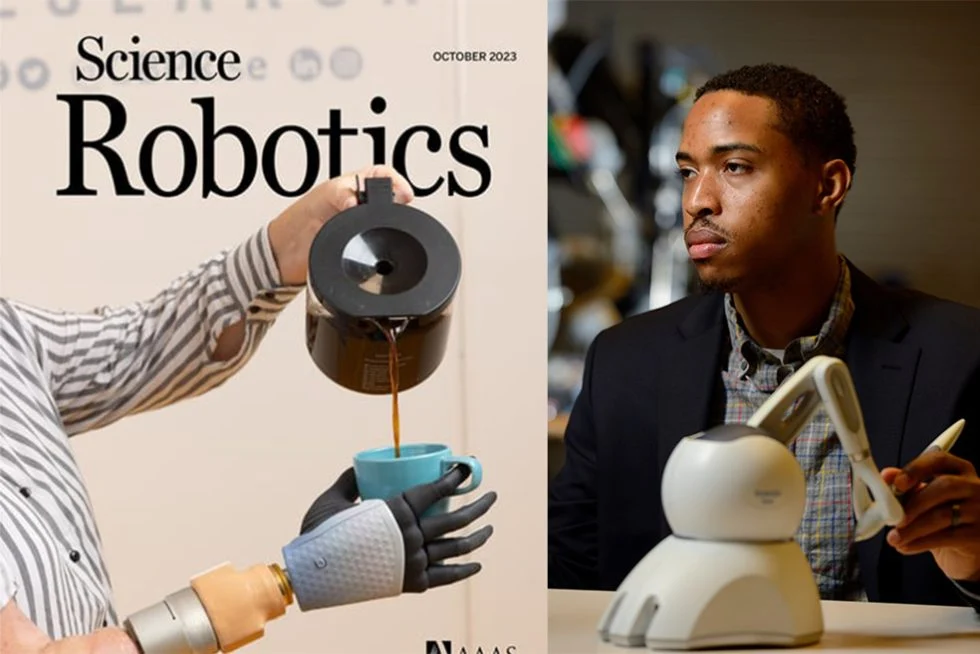
Original Article
Jeremy Brown writes in Science Robotics on involving end users in the early brainstorming phase.
But Jeremy D. Brown, John C. Malone Assistant Professor of Mechanical Engineering, and other researchers in the field feel that there is a better path forward. In a new focus feature in Science Robotics, Brown and his coauthors—the majority of whom are prosthesis users—argue that involving end users in the early brainstorming phase of prosthesis development is crucial for understanding their needs and desires. This inclusion, they say, is necessary to effectively design devices that are both useful and functional.
Motivated by conversations with prosthesis users about real problems with their devices and discussions with other researchers regarding their collective tendency to involve users in the process only once technologies are “demo-ready,” the team conducted a full-day workshop focused on understanding the needs of prosthesis users. The event was part of the 2023 IEEE World Haptics Conference held in Delft, the Netherlands.

Although the researchers gleaned valuable information from surveys that asked panelists what they considered the most important features of upper-limb prostheses, one of their most important findings was that such needs and preferences can vary widely from user to user.
“Our findings highlight the fact that there is no ‘one size fits all’ approach to improving prosthesis technology,” says Brown. “Instead of trying to find universal solutions that work for all users, we should instead begin to use modular approaches that realize personalized solutions for individual users.”
Panelists also pointed out that individuals with limb loss who lack financial means or health care coverage are unlikely to receive high-end prostheses and that user studies are likely to overrepresent individuals who have the economic ability to acquire cutting-edge prosthesis technology.
“Cooperation benefits users, researchers, and the end product, so I hope that more users from different backgrounds will have opportunities to participate,” one panelist remarked.
The researchers urge scientists, engineers, and technologists to talk to prosthesis users directly, seek to understand their specific needs, and then develop unique prosthesis innovations in response.
“Realistically improving upper-limb prostheses is only possible if we listen to users’ actual technological needs,” says Brown.
As part of this effort to realize impactful prosthesis technology, Brown’s team at Johns Hopkins plans to connect with organizations such as the Amputee Coalition and the American Orthotics and Prosthetics Association to advertise their research, publish their findings, and seek feedback from the end-user community.
“We will also begin to explore more open-source, low-cost approaches to prosthesis technology development to help reduce the impact of socioeconomic status on prosthesis users’ quality of life,” says Brown.
Featured People
PostDoc, MEAM '17 - John C. Malone Assistant Professor, Johns Hopkins University
